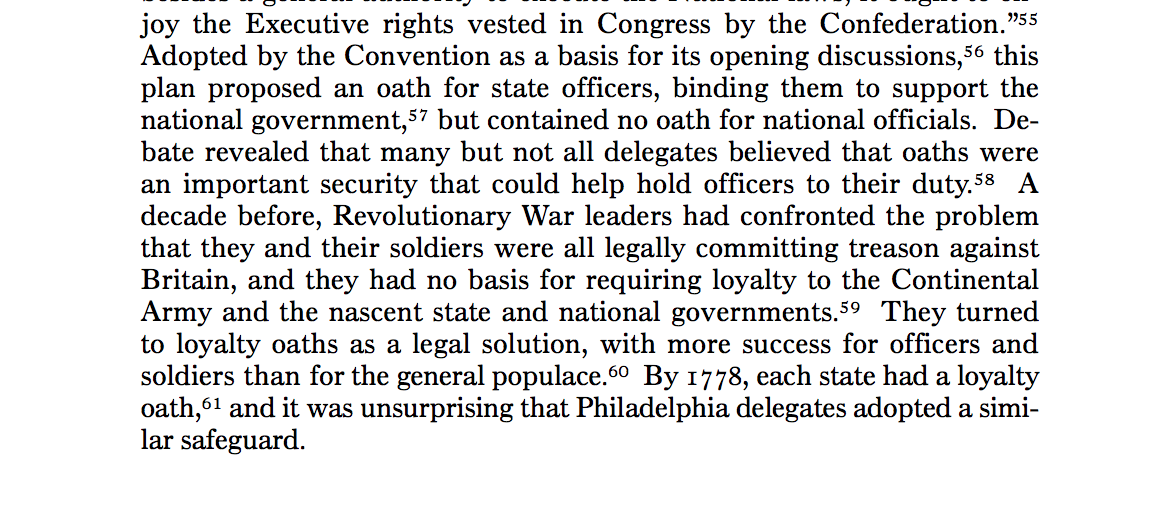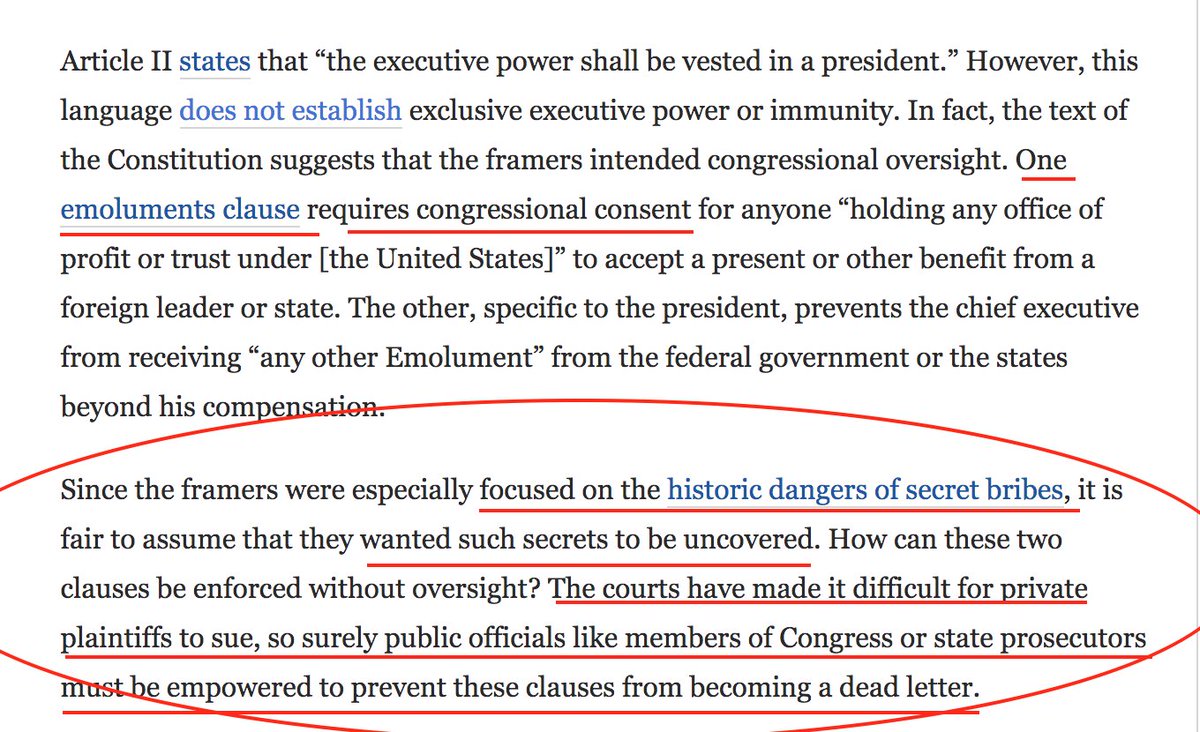Because its anti-pluralist/orthodox view of oaths is inconsistent with the original public meaning and constitutional text on oaths.
Start with @GGKrishnamoomoo @erikencarnacio2:
Oaths drafted by the 1st Congress:
"I will faithfully & impartially...perform all the duties incumbent upon me, according to the *best of my abilities* & *understanding*, agreeably to the constitution"
But wait. There's more. 2/

A) "Oath or Affirmation"
B) “I do solemnly swear (or affirm)"
C) "good faith"
D) "best of my Ability"
We show it had legal significance, but not monistic objective orthodoxy.

Of course, there is some anti-tolerant anti-Catholic orthodoxy in the English history...
harvardlawreview.org/2019/06/faithf…
In the 1787 Convention, the salient debate on oaths was our quintessential pluralism:
A federalism debate of mixed loyalties...
Gerry “suppose[d] that the national legislators ought to be sworn to preserve the state constitutions, as they will run the greatest risk to be annihilated.”
Pluralistic understandings of oaths.
Originalist dual sovereignty federalism/pluralism.
Not nationalist orthodox monism.
Ironic for the Oath = Originalism Orthodoxy Argument, eh?
@WilliamBaude suggests more work on oaths.
@kellenfunk is doing great award-winning work.
@RichardMRe has intriguing non-originalist arguments.
I just wanted to flag the historical & textual questions in this thread...













